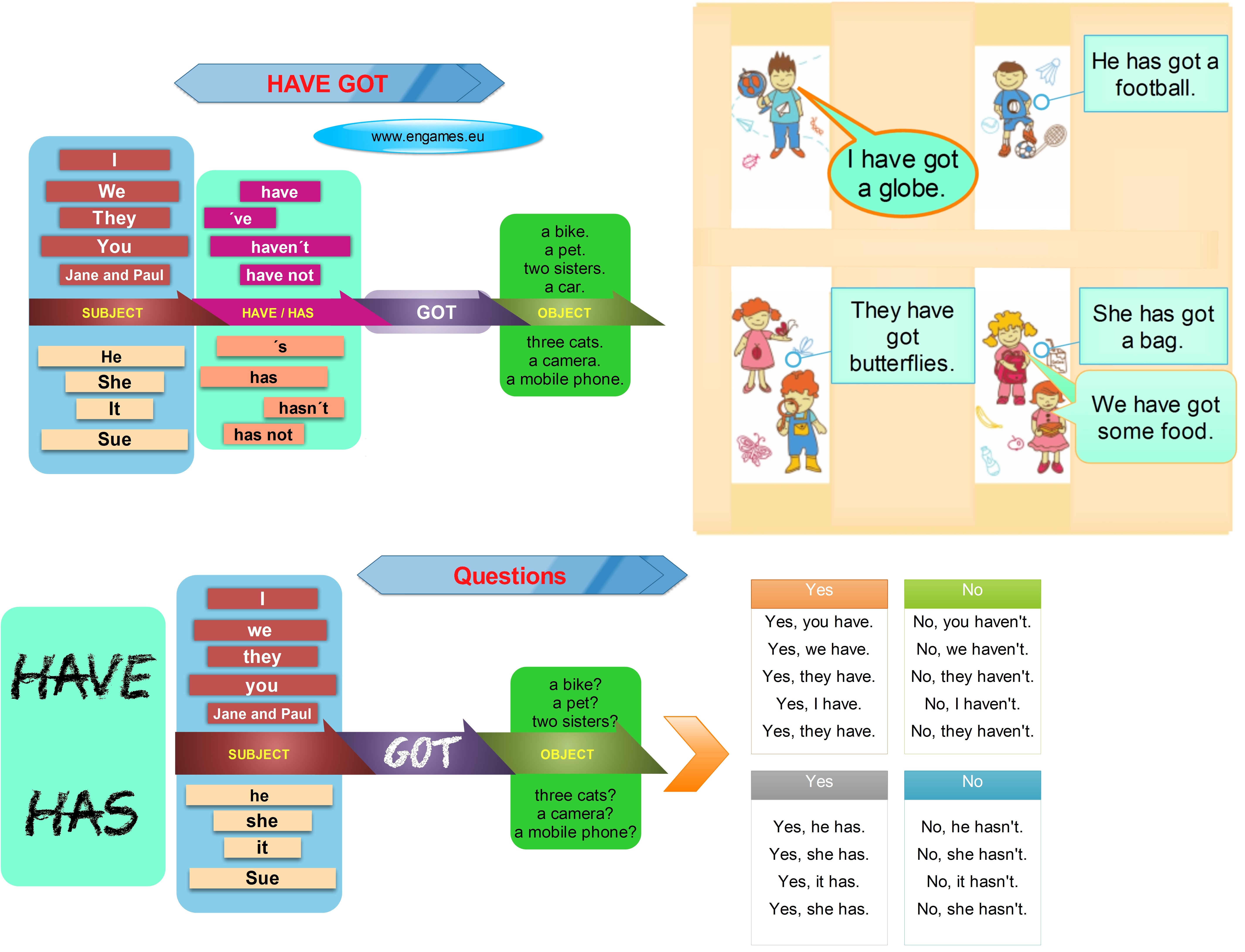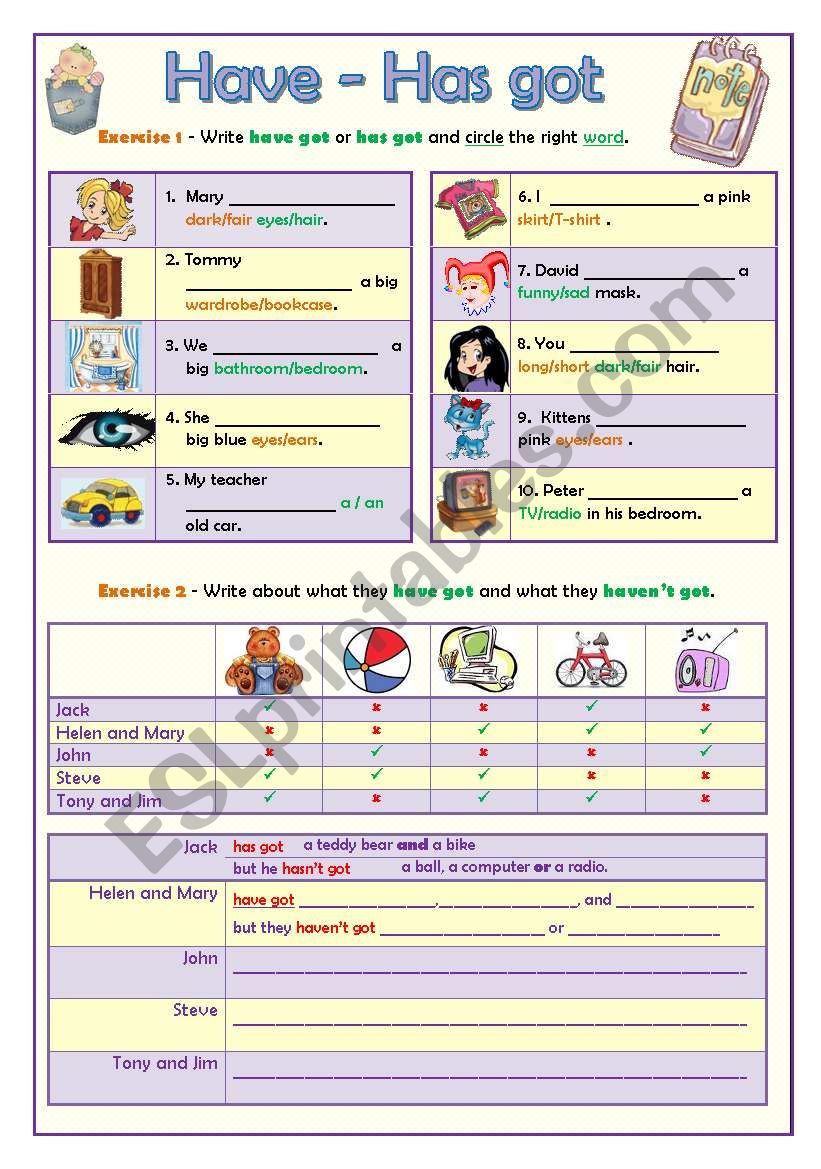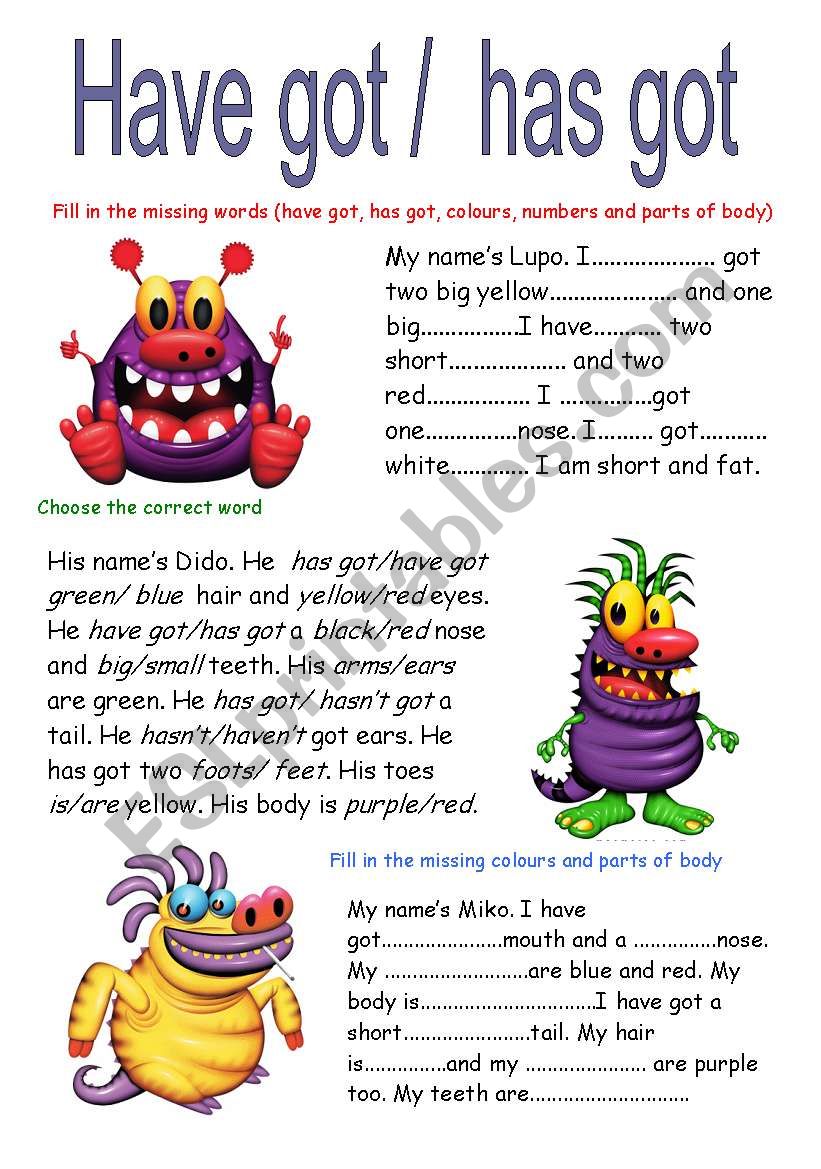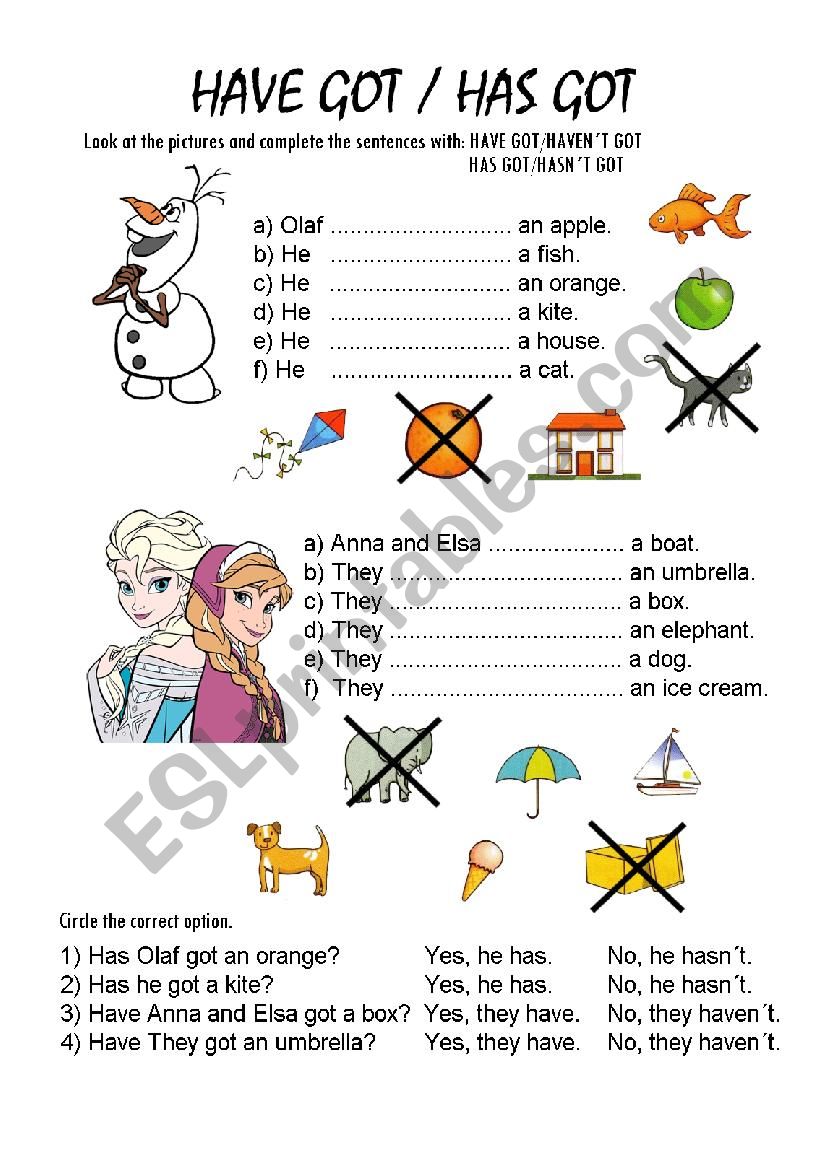
Colloquial English for Everyone HAVE / HAS GOT CHART
HAVE GOT - Used in British and American English. In both British and American English, have got means have when it's followed by a noun phrase, and have to ( or must) when it's followed by to + a verb. Below are some examples of each. Some of them include contractions with have/has + got, which are common. HAVE GOT + NOUN = have (more.

Has Got Have Got Boardgame English Esl Worksheets For
Have or Have Got. There is no difference in their positive form. They both have meaning of "possession". However "have" without "got" is more preferred in American English. We've got a car. (British English) We have a car. (American English) Daniel has got two toys.

2º de Primaria English have got / has got
have got, has got have got or has got 1. Affirmative sentences with have got and has got We use has got in the 3rd person singular (he,she, it), and we use have got with all other persons. 2. Negative sentences with have got and has got * This form is rarely used. Spelling Rule: There is no e in hasn't. correct → She hasn't got a ruler.

Have got Has got ficha interactiva y descargable. Puedes hacer los ejercicios online o
A simple song to teach students of all levels how to use "have got" and "has got" in English. Lyrics:I've got, you've gotI've got, you've gotHe, she, it's go.

Have got/ Has got/ Haven't got /Hasn… English ESL worksheets pdf & doc
We can use have to talk about possessions, family (and other) relationships and illnesses. ☞I/you/we/they (plural nouns) have (present tense) ☞He/She/it (singular nouns) has (present tense) Singular nouns one person / animal / thing, etc. Plural nouns more than one person / animal / thing, etc. I have a new bike.

HAVE GOT/ HAS GOT (2 pages) ESL worksheet by kopciuszek
c. 've got. Exercises: 1 2 3. The verb "have got" is common in British English. It is basically used to express possession or in descriptions. In American English, they use the verb "have". Check our complete grammar explanation and do the online exercises. A1-A2 English grammar online.

have got/has got ESL worksheet by michaela3080
Have Got & Has Got - GrammarBank Have Got / Has Got Read through the table below, look at the examples to learn the different forms of have got / has got and the differences between them. Practice with the follow up exercises. Subject Explanations: Have Got / Has Got Chart Have/Has vs Have/Has +Got Drag and Drop Exercises:

Pin on english
Here's the main difference between have and have got: generally speaking, Have is more common in North America and have got is more common in the United Kingdom. Have got forms are informal, and they're also most common in the present. Keep reading to learn more about the different uses of have and have got . Teaching English Just Got Easier!

Have got / has got examples using plural and singular Escuela oficial de idiomas, Cursillo
Have got or has got Lucie Rohrerová Member for 3 years 8 months Age: 8-15 Level: Grade 1 Language: English (en) ID: 711621 10/02/2021 Country code: CZ Country: Czechia School subject: English language (1061957) Main content: Present simple (2013117) have got/has got Other contents: verb to have got Loading ad. Share / Print Worksheet

Has Got And Have Got Worksheets Pdf Askworksheet
Have got is more informal. We use have (got) here to refer to both verbs: I've got a terrible pain in my back. I have a terrible pain in my back. (more formal) They haven't got a car. They don't have a car. (more formal) We use have ( got) to talk about possession, relationships, characteristics and illnesses.

Have Has Got Worksheets Askworksheet
We use " have got / has got" to talk about things we own, which are included in our assets. To give the meaning of that we possess something, we use have got / has got. The difference between have got/ has got depends on the subject. We use " have got " with the subjects " I/you/we/they ". The short form of have got is " 've got".

English Grammar Have and Have Got ESLBUZZ
We use "have got/has got" to talk about possessions. We can talk about things, family, and friends using this structure. Form (+) Positive Sentences. Subject Verb Object; I You We They: have got ('ve got) a bicycle. two dogs. a sister. some toys. He She It: has got ('s got) a horse. an uncle. a tail. (-) Negative Sentences. Subject Verb

have got has got English lessons for kids, Teaching english, English grammar for kids
@interestingenglish Have got and has got for kids. Grammar. Learn English#learnenglish #english #kidsvideo #kids #grammar #havegot #havehas #hasgot #have #ha.

Have got. Has got activities with li… English ESL worksheets pdf & doc
Have got (have/has + got) is used to talk mainly about possessions or personal attributes. Give me some examples, please. Certainly, here you are: I've got a new computer. They haven't got any red chilli peppers. She's got long, brown hair. He hasn't got many friends. So the negative is have/has + not + got? Yes, but don't forget the contraction.

HAS HAVE GOT Language Teaching english grammar, English grammar worksheets, English grammar
1. You can say : I have or I have got/ They both have the same meaning. "Have got /has got" is a more conversational & informal use.

HAVE GOT/HAS GOT general gramma… English ESL worksheets pdf & doc
HAVE and HAVE GOT mean the same thing when you are talking about owning something, holding something, or relationships. He has $20 in his wallet. He has got $20 in his wallet. 🔑Have or Have got? (Easy English Grammar) *Remember the verb HAVE changes to HAS for the third person singular. He has / She has / It has